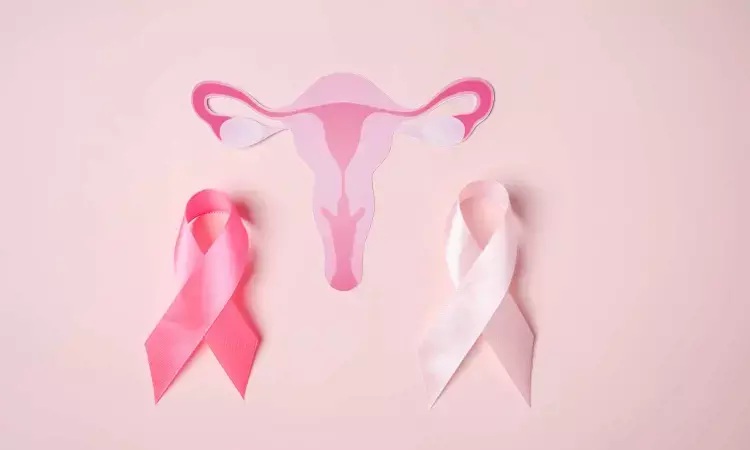- Home
- Medical news & Guidelines
- Anesthesiology
- Cardiology and CTVS
- Critical Care
- Dentistry
- Dermatology
- Diabetes and Endocrinology
- ENT
- Gastroenterology
- Medicine
- Nephrology
- Neurology
- Obstretics-Gynaecology
- Oncology
- Ophthalmology
- Orthopaedics
- Pediatrics-Neonatology
- Psychiatry
- Pulmonology
- Radiology
- Surgery
- Urology
- Laboratory Medicine
- Diet
- Nursing
- Paramedical
- Physiotherapy
- Health news
- Fact Check
- Bone Health Fact Check
- Brain Health Fact Check
- Cancer Related Fact Check
- Child Care Fact Check
- Dental and oral health fact check
- Diabetes and metabolic health fact check
- Diet and Nutrition Fact Check
- Eye and ENT Care Fact Check
- Fitness fact check
- Gut health fact check
- Heart health fact check
- Kidney health fact check
- Medical education fact check
- Men's health fact check
- Respiratory fact check
- Skin and hair care fact check
- Vaccine and Immunization fact check
- Women's health fact check
- AYUSH
- State News
- Andaman and Nicobar Islands
- Andhra Pradesh
- Arunachal Pradesh
- Assam
- Bihar
- Chandigarh
- Chattisgarh
- Dadra and Nagar Haveli
- Daman and Diu
- Delhi
- Goa
- Gujarat
- Haryana
- Himachal Pradesh
- Jammu & Kashmir
- Jharkhand
- Karnataka
- Kerala
- Ladakh
- Lakshadweep
- Madhya Pradesh
- Maharashtra
- Manipur
- Meghalaya
- Mizoram
- Nagaland
- Odisha
- Puducherry
- Punjab
- Rajasthan
- Sikkim
- Tamil Nadu
- Telangana
- Tripura
- Uttar Pradesh
- Uttrakhand
- West Bengal
- Medical Education
- Industry
Patients with premature ovarian insufficiency and early menopause at high Multimorbidity risk, suggests study

A new study published in the journal of Fertility and Sterility showed that individuals with premature ovarian insufficiency (POI) and early menopause have higher rates of multimorbidity when compared to women going through menopause at a normal age.
Deficient ovarian sex hormones and a diminished ovarian reserve are the hallmarks of premature ovarian insufficiency, which combined cause an early onset of menopause and a rapid decline in ovarian function. Hot flashes, night sweats, and sleeplessness are just a few of the many menopausal symptoms brought on by the reduction in estrogen output.
A woman's health may suffer from a number of long-term negative effects from premature estrogen deprivation brought on by POI, such as an elevated risk of coronary artery disease, osteoporosis, dementia, diabetes, dyslipidemia, and other chronic illnesses that accelerate ageing and multimorbidity accumulation. Therefore, to compare the average age of menopause to that of patients with early menopause and premature ovarian insufficiency, Abirami Kirubarajan and colleagues undertook this study to describe the incidence of multimorbidity.
Women who had gone through menopause were included in this prospective cohort from the Canadian Longitudinal Study on Ageing (CLSA). The CLSA acquired cross-sectional data on 50,000 community-dwelling Canadians from 45 to 85 years of age between 2010 and 2015. Primary ovarian insufficiency, which is characterised by menopause beginning before age 40, was the main exposure. The age range of 46 to 55 years, early menopause (40-45 years), late onset menopause (56–65 years), and hysterectomy patients were the comparators. Multimorbidity, or having two or more chronic illnesses, was the main outcome. Severe multimorbidity and the frequency of particular chronic illnesses among a complete list of 15 distinct conditions comprised the secondary result.
A total of of 12,339 postmenopausal individuals were included, with 374 experiencing POI and 1396 undergoing early menopause. Multimorbidity was prevalent in 64.8% and 51.1% of patients with POI and early menopause, respectively. Also, only 43.9% of the women who reached menopause at the usual age had several medical conditions. The OR for multimorbidity in the POI sample was 2.5 times that of women who went through menopause at the typical age. This association remained after accounting for confounders. In addition, the POI group had double the prevalence of severe multimorbidity as the usual age group. Overall, the POI group had a considerably higher chance of developing ischemic heart disease, stomach ulcers, and osteoporosis.
Reference:
Kirubarajan, A., Sohel, N., Mayhew, A., Griffith, L. E., Raina, P., & Shea, A. K. (2024). The association between primary ovarian insufficiency and increased multimorbidity in a large prospective cohort (Canadian Longitudinal Study on Aging). In Fertility and Sterility. Elsevier BV. https://doi.org/10.1016/j.fertnstert.2024.08.345
Neuroscience Masters graduate
Jacinthlyn Sylvia, a Neuroscience Master's graduate from Chennai has worked extensively in deciphering the neurobiology of cognition and motor control in aging. She also has spread-out exposure to Neurosurgery from her Bachelor’s. She is currently involved in active Neuro-Oncology research. She is an upcoming neuroscientist with a fiery passion for writing. Her news cover at Medical Dialogues feature recent discoveries and updates from the healthcare and biomedical research fields. She can be reached at editorial@medicaldialogues.in
Dr Kamal Kant Kohli-MBBS, DTCD- a chest specialist with more than 30 years of practice and a flair for writing clinical articles, Dr Kamal Kant Kohli joined Medical Dialogues as a Chief Editor of Medical News. Besides writing articles, as an editor, he proofreads and verifies all the medical content published on Medical Dialogues including those coming from journals, studies,medical conferences,guidelines etc. Email: drkohli@medicaldialogues.in. Contact no. 011-43720751


